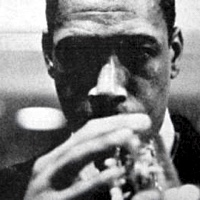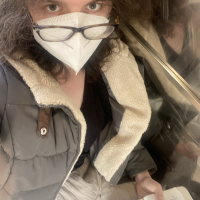Home » Jazz Musicians » Dupree Bolton
Dupree Bolton
Dupree Bolton - trumpet
An elusive figure, Bolton's early life is shrouded in uncertainty other than that he ran away from home at the age of 14. By 1944, he was in New York City where he played trumpet in Buddy Johnson's band, before moving into the Benny Carter big band. In 1946 he made the first of several disappearances through illness or imprisonment that came on the heels of his drug addiction.
In 1959, his appearance on Harold Land's “The Fox” excited considerable interest owing to his inventive bop styling. Soon afterwards, however, he was in trouble with the law over substance abuse. He reappeared in 1962 to play with Curtis Amy on “Katanga!,” again causing quite a stir.
His startlingly individualistic soloing was inventive and fully formed, his work showing a man of imagination and in complete command of his instrument. The fact that he appears to have made no other records has helped to make these particular recordings touchstones for a lost career.
Not long after the Amy date, Bolton went to prison but played with Bobby Hutcherson in 1967 before once again being imprisoned. While serving time at the Joseph Harp Correctional Center in Tulsa, Oklahoma, he played in a prison band. Released in 1982, he worked fleetingly with Dexter Gordon in Oklahoma City but thereafter Bolton drifted from sight but it is believed he relocated to the west coast, where he was rumored to have been a street musician in San Francisco.
Below is a brief synopsis of this rare recording, and a nod to Bolton, by a gentleman who calls himself Chance Lucky.
“Fireball”, a posthumous album of Dupree Bolton's lost tracks. The material consists of air checks from the 1962 television show, Frankly Jazz (Frank Evans) where Bolton plays with Curtis Amy, two lost tracks/outtakes from a Pacific Jazz session with Amy (good again, but one can understand why they didn't get included on an album— this material also includes solos by Earl Andeerza a sax player whose mystique as a lost jazz genius almost matches Bolton's) and most intriguing of all several tracks from 1980 of Bolton playing with an Oklahoma prison band (to me this was the saddest of all, it might have been that the other musicians couldn't push him, but there's a subdued and slightly broken quality to Bolton's playing on it that all but destroys the fantasy that the trumpeter of The Fox and Katanga's music continued to progress and grow).
Read moreTags
The Mysterious Disappearance of Dupree Bolton and Baby Face Willette

by Larry Slater
Every so often, musicians appear seemingly out of nowhere, make an impressive splash in the jazz world, and then seem to disappear into thin air. That's the story of two musicians who had remarkable debuts, and then were never heard from again: the trumpeter Dupree Bolton and B3 organist Baby Face Willette.Dupree Bolton caused a sensation on the West Coast when he appeared, unknown and out of the blue, at the close of the 1950s. He made a ...
Continue ReadingThe Fox

by Richard J Salvucci
There was once a legendary trumpet player named Jack Purvis who was a disciple of Louis Armstrong. Purvis was an excellent player, but he was in and out of trouble for most of his life. So he spent some time in jail. In fact, so much time that Purvis once led (documented in the Fort-Worth Star Telegram, March 30, 1938) a broadcast from a Texas prison in Huntsville. Purvis led many lives, and was sometimes spotted in odd places like ...
Continue ReadingWhere in the World is Dupree Bolton?

by Patrick Burnette
This fortnight's spectacular focuses on two very different sets of music--two albums by modern jazz violinists and the two best-known recordings featuring elusive trumpeter Dupree Bolton (they are just about the ONLY recordings featuring him--stay tuned for the details). Pop matters range from St. Vincent to Sparks to Sade--and that's some ranging. Playlist Discussion of Tomoko Omura's album Branches Vol. 2 (Outside In Music) 3:20 Discussion of Ali Bello's album Inheritance (Tiger Turn) 17:07 Discussion of Harold Land's ...
Continue Reading










